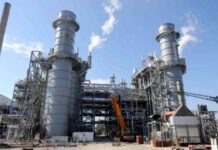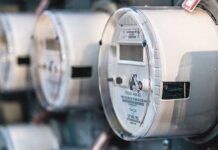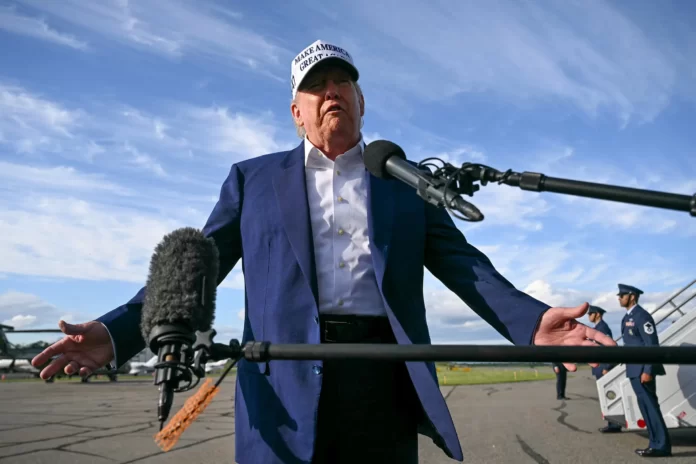U.S. President Donald Trump reiterated his commitment to using tariff policies to bolster domestic manufacturing, emphasizing a strategic pivot toward high-tech and defence industries rather than traditional textile production.
Speaking to reporters before boarding Air Force One in New Jersey, Trump clarified that his administration’s focus is on encouraging the domestic production of military equipment, advanced technology, and heavy manufacturing, not consumer goods like sneakers and T-shirts.
“We’re not looking to make sneakers and T-shirts. We want to make military equipment. We want to make big things… chips and computers and lots of other things, and tanks and ships,” Trump said.
He echoed earlier remarks by Treasury Secretary Scott Bessent, who recently suggested that a thriving U.S. textile industry was not critical to national interests, a statement that drew sharp criticism from the National Council of Textile Organizations.
In response, the American Apparel & Footwear Association (AAFA) cautioned that further tariffs would strain the already burdened industry. “With 97% of the clothes and shoes we wear being imported… more tariffs will only mean higher input costs for U.S. manufacturers and higher prices that will hurt lower-income consumers,” said AAFA President Steve Lamar.
Trump’s remarks come amid renewed tensions with the European Union. On Friday, he called for a 50% tariff on EU imports effective June 1 and floated a potential 25% tariff on all imported iPhones sold in the U.S. However, on Sunday he softened the EU threat, extending the tariff deadline to July 9 to allow time for negotiations.
Trump, who won both the 2016 and 2024 elections with strong support from manufacturing-dependent regions, continues to pursue aggressive trade measures aimed at reshaping global supply chains and reviving U.S. industrial capacity. Despite ongoing dependencies on lower-cost overseas production, particularly in textiles and apparel, the administration is signalling a strategic shift toward bolstering sectors considered vital to national security and technological leadership.























